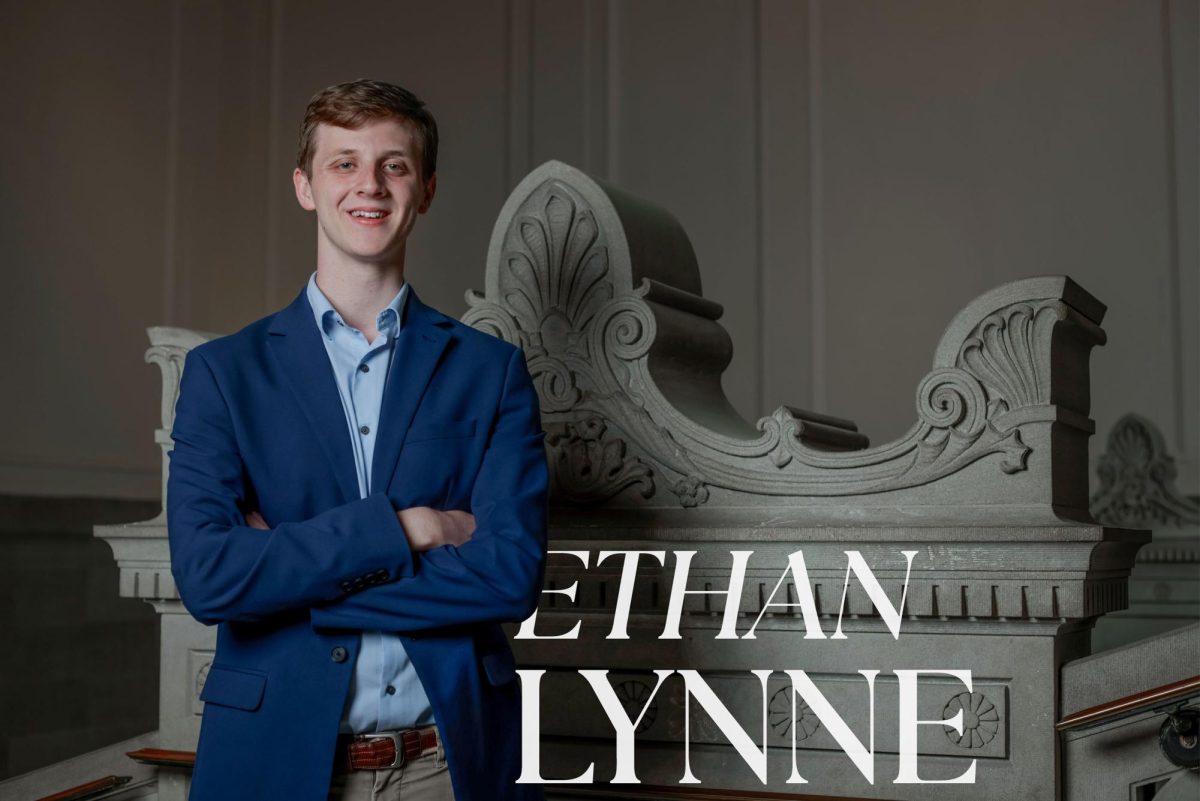The University signaled its intent to make a bigger splash in the much-debated world of online learning Monday by pulling its law dean to become the first vice provost for online education and academic innovation.
The unconventional pick will abruptly move Paul Schiff Berman from the deanship of the GW Law School to the provost’s office, where he said he was drawn to a new role that would give him the chance to mold GW’s online future – one in which academic reputation and revenue potential could hang in the balance. GW so far has resisted following top universities in adding massive open online courses and sketching out a University-wide online future.
While the University has built up its offerings of online graduate courses and programs in the last several years, Berman is the first administrator tasked solely with strategizing how to improve and grow them.
“It’s very important that just because it’s online, does not mean it is inferior or mass-produced or not serious,” Berman, a cyber law expert, said. “I’d consider it a failure if we were just creating a cut-rate replica of the GW experience. I want to create a unique, distinctive GW experience online.”
He said his willingness to innovate at the law school by linking up with the GW School of Business to offer masters programs and modernize traditional legal education made him the right man for the job, but talks only began within the last several weeks.
“This becomes a way to do some of the innovative work I was hoping to do at the law school on a larger scope,” he said.
Berman’s charge from the University is a lofty one. Administrators nationwide have wrestled with how online learning will reshape the revenue game and the delivery of higher education. Some have likened it to a tornado that could disrupt how traditional universities do business or undercut the value of pricey degrees.
And while massive open online courses – free, not-for-credit courses dubbed MOOCs, pioneered by major universities like Stanford, Harvard and MIT – have swept universities off their feet this year, GW has remained skeptical about their viability and revenue potential.
Berman said he doesn’t have a specific portfolio of responsibilities yet, and will first gauge what GW already does online. The University will also look to tap into the online potential for executive education programs and not-for-credit public policy discussions, he said.
“I do think the last year or two is starting to create a tipping point where people across the spectrum see this as an innovative reality,” Berman said. “For any university, it’s important to really move into this space. On the other hand, we don’t want to just do it to be like everyone else.”
The New York Times dubbed 2012 “the year of the MOOC” last month, as the two major startups, edX and Coursera, have already drawn nearly 2 million students. The American Council on Education, a leading higher education group, announced Tuesday that it will launch a project, fueled by a $3 million gift from the Bill and Melinda Gates Foundation, to determine whether some MOOCs should be transferable for college credit.
The online programs were even the catalyst for the scandal that shook the University of Virginia in June, when members of the school’s governing board suddenly pushed out president Teresa Sullivan because she stalled on adding the online courses. She was later reinstated and the university added MOOCs.
Three schools GW calls its competitors – Vanderbilt, Duke and Emory universities – have already linked up with Coursera to offer MOOCs, a move that seemingly helps their prestige and reputation for innovation. But none of those schools have an administrator in the provost’s office specifically responsible for online education.
The online format has also come under fire nationwide from those who say for-profit colleges and even some nonprofits have sacrificed educational quality for dollar signs. GW has avoided most of that criticism, earning top ranks in U.S. News & World Report’s inaugural list of online programs in January.
A city-regulated enrollment cap that limits the number of students on the Foggy Bottom and Mount Vernon campuses in particular has spurred GW officials to tap into online programs. Instead of looking toward free and open courses, the University has mostly looked to capitalize on hybrid programs that blend classroom and online learning and allow it to slide under the cap.
University President Steven Knapp said he has more questions than answers about MOOCs, especially when it comes to their financial potential.
“I think you do have to be careful,” Knapp said. “You have to spend something to produce these courses, and if you spend money producing a MOOC course that you’re not spending producing another course, and you don’t get any revenue in return, that takes away from something else you’re doing. ”
“What we’ve had so far is a lot of laissez-faire experiments happening here and there, but not a concerted effort at the University level, so it’s an important new direction for us,” he said.
GW recently offered graduate programs $65,000 each to switch to hybrid by adding online elements, but only four programs expressed interest.
The GW School of Business and School of Public Health and Health Services have also invested heavily in their online graduate programs this fall, teaming up with education startups to launch online components.
Until now, Vice Provost for Teaching and Learning Stephen Ehrmann, who came to GW last fall, has been the lead administrator for online learning. A group of faculty called the Teaching and Learning Collaborative also added two instructional designers this year to create online courses.
For undergraduates, the University has mostly focused on offering online courses over the summer, not during the academic year.
Gregory Maggs, who served as interim dean before Berman took the helm, called the dean “an expert on the Internet.” The professor of nearly two decades said the drive Berman demonstrated while running the law school would lead him to success in the emerging field of online learning.
When he learned GW was adding a position focused on online programs, Maggs said he was reminded about this summer’s University of Virginia controversy.
“I think this shows that Knapp and Lerman are wanting to make sure that GW doesn’t fall behind,” Maggs said.
Sarah Ferris contributed to this report





